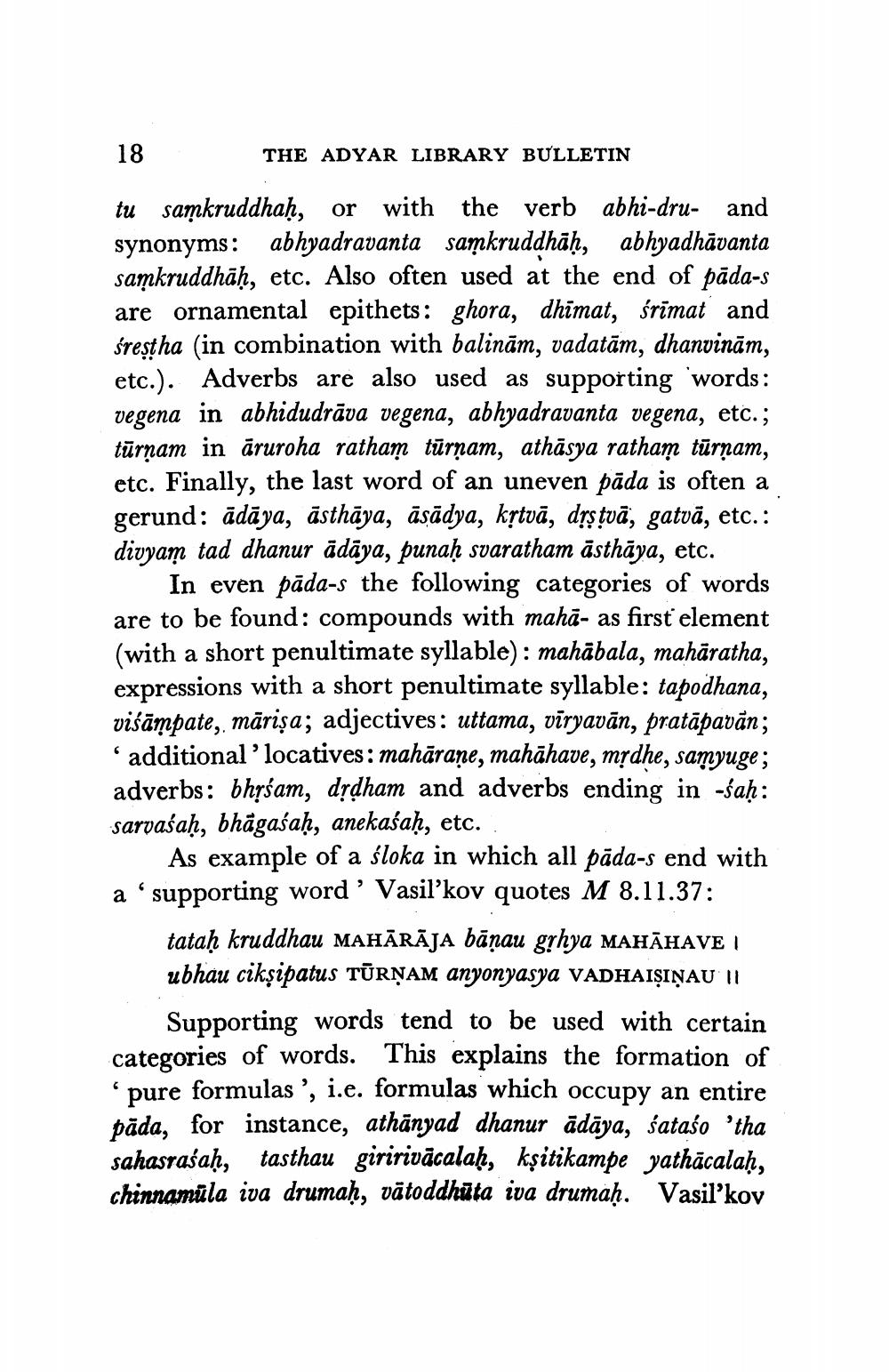________________
18
THE ADYAR LIBRARY BULLETIN
tu samkruddhaḥ, or with the verb abhi-dru- and synonyms: abhyadravanta samkruddhāḥ, abhyadhāvanta samkruddhāḥ, etc. Also often used at the end of pāda-s are ornamental epithets: ghora, dhimat, śrīmat and Śrestha (in combination with balinām, vadatām, dhanvinām, etc.). Adverbs are also used as supporting words: vegena in abhidudrāva vegena, abhyadravanta vegena, etc.; tūrņam in āruroha ratham tūrņam, athāsya ratham tūrņam, etc. Finally, the last word of an uneven pāda is often a gerund: ādāya, ästhāya, āsādya, kṛtvā, drstvā, gatvā, etc.: divyam tad dhanur ādāya, punaḥ svaratham ästhāya, etc.
In even pāda-s the following categories of words are to be found: compounds with mahā- as first element (with a short penultimate syllable): mahābala, mahāratha, expressions with a short penultimate syllable: tapodhana, visāmpate, mārișa; adjectives: uttama, vīryavān, pratāpavān; ' additional ’ locatives: mahārane, mahāhave, mțdhe, samyuge; adverbs: bhrśam, dựdham and adverbs ending in -śaḥ: sarvaśaḥ, bhāgaśaḥ, anekaśaḥ, etc.
As example of a śloka in which all pāda-s end with a 'supporting word ' Vasil'kov quotes M 8.11.37:
tataḥ kruddhau MAHĀRĀJA bānau gļhya MAHĀHAVE I ubhau cikșipatus TŪRŅAM anyonyasya VADHAIŞIŅAU 11
Supporting words tend to be used with certain categories of words. This explains the formation of
pure formulas ', i.e. formulas which occupy an entire pāda, for instance, athānyad dhanur ādāya, satašo 'tha sahasraśaḥ, tasthau giririvācalah, kșitikampe yathācalaḥ, chinnamüla iva drumaḥ, vātoddhūta iva drumaḥ. Vasilkov




